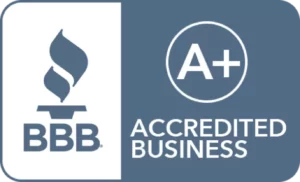Internal Revenue Code Section 514 requires debt-financed income to be included in unrelated business taxable income. These are known as the Unrelated Debt Financed Rules or UDFI.
What is UDFI?
Under Internal Revenue Code Section 514, if an exempt organization, such as an IRA owns “debt-financed property,” some portion of each item of gross income from the property, and a like portion of all related deductions, are included in unrelated business taxable income, whether the income is in the form of rent, interest, gain on disposition of the property, or some other character. Property is debt-financed if it is held for the production of income, its use is not substantially related to the organization’s exempt purposes, and there is acquisition indebtedness with respect to the property. The term “acquisition indebtedness” generally includes any liability incurred before, contemporaneously with, or after the acquisition or improvement of the property if it arose because of the acquisition or improvement or if the need for the indebtedness was foreseeable at the time of the acquisition or improvement.
Under Internal Revenue Code Section 514(b)(1), property is “debt-financed property” if it is held to produce income and “acquisition indebtedness” with respect to the property exists at any time during the taxable year (or, in the case of a disposition, at any time during the preceding 12 months). The application of Internal Revenue Code Section § 514 has a wide application. For example, it has been held that securities purchased on margin can be debt-financed property.
When a debt-financed asset is sold, a special rule applies for the purpose of calculating the taxable gain. The property’s average adjusted basis is the average of the adjusted basis as of the first day during the year in which the property is held by the organization and on the day the property is sold or disposed of. The percentage of gain taxed is the percentage that the average adjusted basis on sale or other disposition of debt-financed property is of the highest amount of acquisition indebtedness with respect to the property during the twelve-month period ending with the date of the sale or other disposition. The regulations permit adjustments to basis that include decreases in basis for depreciation for periods since the acquisition of the property and increases in basis for capitalized improvements or additions.
However, unlike a Self-Directed IRA, in the case of a Solo 401(k) Plan, UBTI does not apply to unrelated debt-financed income. The UDFI rules apply when a 401(k) Plan uses leverage to acquire property such as real estate. Pursuant to Internal Revenue Code Section 514(c)(9), a 401(k) Qualified Plan is not subject to the UDFI rules and, thus, the UBTI tax if nonrecourse leverage is used to acquire property such as real estate.
What is the Unrelated Business Taxable Income Tax Rate?
Internal Revenue Code Section 511 taxes “unrelated business taxable income” (UBTI) at the rates applicable to corporations or Trusts, depending on the organization’s legal characteristics. Generally, UBTI is gross income from an organization’s unrelated trades or businesses, less deductions for business expenses, losses, depreciation, and similar items directly connected therewith.
A Self-Directed IRA subject to UBTI because of the use of nonrecourse financing is taxed at the Trust tax rate because an IRA is considered a Trust. For 2023, a Solo 401(k) Plan subject to UBTI is taxed at the following rates:
- $0 – $2,550 = 10% of taxable income
- $2,551 – $9,150 = $255 + 24% of the amount over $2,550
- $9,151 – $12,500 = $1,839 + 35% of the amount over $9,150
- $12,501 + = $3,011.50 + 37% of the amount over $12,500
It is highly advisable to consult with a tax attorney or tax professional, specifically one with a strong understanding of the unrelated debt finance income and unrelated business taxable income rules, before using a Self-Directed IRA to make investments. Give us a call @ 800.472.1043 if you have any questions about the UDFI rules.











